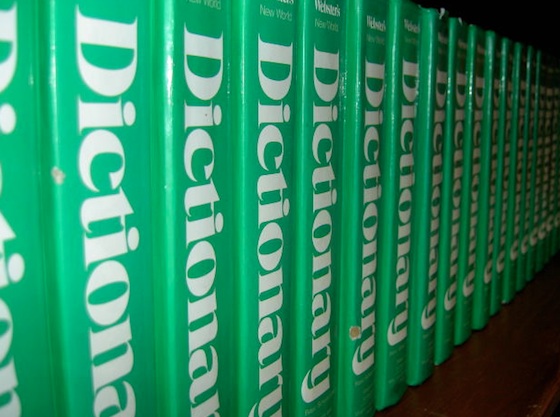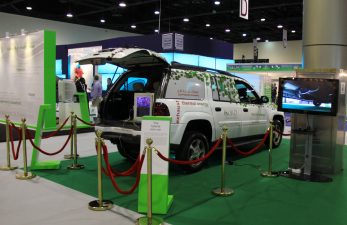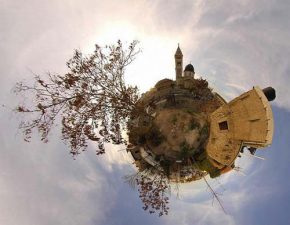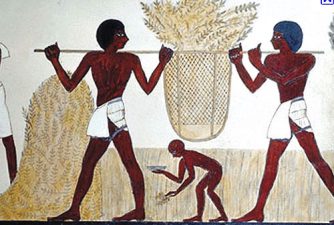At the ongoing Eye on Earth summit in Abu Dhabi, there has been a lot of talk about sharing environmental data. But we question whether knowledge is enough.
As early as 1930, a British engineer named Guy Calendar warned that increased carbon emissions as a result of industrialization was beginning to raise the global surface temperature of the earth. The following year, a man named E.O. Hulbert wrote in the Physical Review that if atmosphere CO2 concentrations doubled or tripled, then the earth’s surface temperature would increase by 4 and 7 degrees Celsius.
Now — nearly a century later — climate change is well underway. This is what a handful of high profile luminaries are currently addressing at the Eye on Earth Summit in Abu Dhabi, and The National reports a focus on knowledge. Sharing environmental data, experts say, will bring us closer to mitigating climate change. Will it?
Sharing environmental data
That the most developed countries need to share their accumulated climate change knowledge has been a common view at the summit being held at the Abu Dhabi National Exhibition Center.
According to The National, Razan Khalifa Al Mubarak – the secretary general of the Environment Agency – Abu Dhabi (EAD) – told conference attendees in an opening address that it is “particularly important” for the UAE to have access to environmental information. This sentiment was echoed by Catherine Armour, the programme manager of the Abu Dhabi Global Environmental Data Initiative.
Geo-mapping specialist Jack Dangermond from the Environmental Systems Research Institute argued that a platform should be developed complete with maps and charts and the most comprehensive environmental data available, all of which should be shared internationally.
But is knowledge enough?
He said “this will change the world,” and an online Environmental Atlas of Abu Dhabi Emirate, which will be an e-learning tool available to the public, is soon to be launched.
While this is a welcome development and we agree that knowledge should be shared widely, is there really any indication that this knowledge will save us from ourselves?
If knowledge is enough, why did it take us nearly a century to get serious about climate change?
If knowledge is enough, why have the COP meetings in Copenhagen, Cancun, and now Durban failed to produce the kind of sweeping change that has to happen if we plan to keep temperatures down?
And if knowledge is enough, why are we even considering perpetuating any kind of new technology that will increase the amount of carbon emissions in our atmosphere?
Knowledge is good and should be shared, but we need more. We need Ecocide laws, and better environmental regulation in general.
:: The National
image via Morguefile





Getting ecocide established as the fifth crime against humanity and under the jurisdiction of the International Criminal Court is absolutely essential if we are going to stop corporate criminals and their supporters in finance and government from destroying the planet.
Thanks Moussa — “political will, good governance, and financial means.” I hope we can pull it off. The stakes are high.
Are adaptation knowledge generation and dissemination/sharing sufficient to make the desired changes? In other terms, what next after knowledge is generated and shared? This was the critical question asked by AfricaAdapt during the IDRC official side event “Building the knowledge base for African adaptation choices” at Durban CoP17 (http://www.africa-adapt.net/news-events/219/). Political will, Good governance and Financial means are some of the answers.